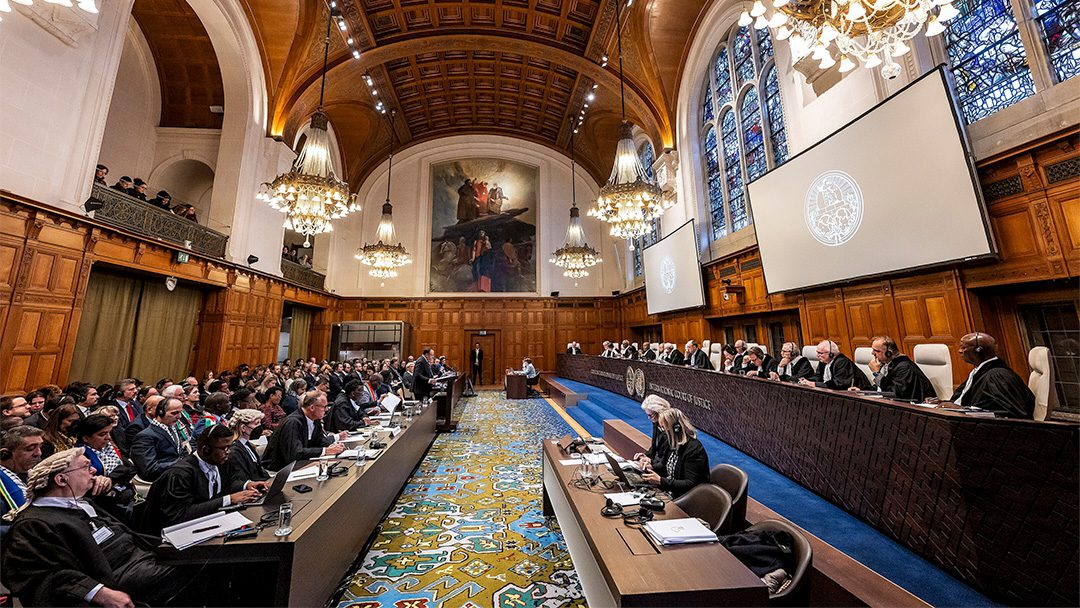“Do not think that I came to destroy the Law or the Prophets. I did not come to destroy but to fulfill.
For assuredly, I say to you, till heaven and earth pass away, one jot or one tittle will by no means pass from the law till all is fulfilled.
Whoever therefore breaks one of the least of these commandments, and teaches men so, shall be called least in the kingdom of heaven; but whoever does and teaches them, he shall be called great in the kingdom of heaven…”
The words of Jesus (Yeshua) in Matthew 5:17-19 NKJV
What do we understand about the Jewish or Hebraic Roots of Christianity?
Having grown up in a Gentile Christian home and preparing for ministry in a Gentile Christian church, little thought was given to the context of the early church in its Jewishness and Torah observance. After all, the only available scripture in the 1st century was the Hebrew Scriptures as we know them.
It wasn’t until about 30 years ago that I realised the significance of the destiny of Israel in the light of Bible prophecy and a short time later the significance of the early church being totally Jewish at first, as I began to investigate the concept of Hebraic/Jewish roots.
The Ministry of Jesus was mostly undergirded by quoting directly from the Old Testament (Tanach) and His upbringing was totally Jewish. As Messiah, His first and second comings cannot be appreciated fully without such understanding. When He returns, He will come as King of the Jews, King of Kings and Lord
of Lords.
The Early Church was embedded in Jewish culture and was part of the foundation of the teaching of Jesus, Paul and Peter. And all of the Old and New Testament writers were overwhelmingly Jewish (Israelitish) in their understanding and character.
Hebraic thought appeals to me as being on a relational level, highlighting the beauty of relationship with God and one another. Alternately, Greek thought focuses more on the intellect and endeavouring to understand scripture quite often philosophically. This academic approach has helped to define modern Christianity.
Many Gentile Christians are now receiving much more meaningful insights, quite often from those who are more inclined towards, or are in fact, Messianic Jewish believers.
For example, David Stern’s Jewish New Testament and later Complete Jewish Bible (with Commentaries), threw much more light on beliefs and practices which would have been current in the early church, but had been lost over the centuries.
Even the use of the title of ‘Christ’ (translated from Greek) would more accurately translate to ‘Messiah’, which comes directly from the Hebrew word ‘Maschiach’.
The influence of early Church from the 2nd and 3rd century onward did much to dissociate believers from the Jewish Roots and understandings of the faith by playing a role in the introduction of non-biblical elements of ‘Easter’ and ‘Christmas’ which many believe have Pagan origins as alternatives to God’s festivals and His declared Sabbath, which, incidentally dates from creation and has never been invalidated by Scripture.
Torah Observance
Some even claim to be ‘Torah Observant’…What does this mean?
Understanding our faith in the light of the Old Testament and seeing it as a natural progression from the Law of Moses to the New Covenant ‘in His Blood’, can be a healthy and meaningful pursuit, but if Torah observance means placing ourselves under law to endeavour to please God, or even to earn our salvation, then that is quite problematic.
Rabbinic teaching and Biblical Judaism may be similar but not the same.
“A healthy respect for the Old Testament… in the light of the New Covenant is of inestimable value.”
I see a difference between Rabbinic traditions introduced since the time of Jesus’ earthly ministry and Biblical Judaism which was based solely on scripture.
Many Christians can be quite critical of Jewish traditions while hypocritically promoting man-made traditions and forms of idolatry in church life today. Man made traditions can be a problem, irrespective of their origins.
New Covenant believers may attract legitimate criticism from other Gentile Christians if they are teaching and implementing a type of Jewish roots where traditions developed in the last two millennia, for example, those contained in Mishnah, Talmud and other traditions like Kabbalah, are not necessarily reliant on scripture for their validity.
The Ten Commandments, at the very least, provide a guideline for living and have done so for millennia in our personal lives as well as the foundational principles for much of the western world’s legal system.
Even though acceptable behaviour by some in recent times, particularly relating to moral issues, is changing, that’s not the case for those who uphold the Word of God as their final authority in matters of holiness and godliness.
Perhaps, the issue of the fourth commandment regarding the weekly Sabbath is finding its proper place in more recent times, as believers pursue more understanding of the foundations of our faith in Biblical Judaism and the validity of this special day. In this, though, we are reminded by Paul not to judge one another. (Colossians 2:16)
Hebraic thought, as contained in the entire Bible, can lead us to a healthy perspective in our New Covenant faith. After all, the New Covenant was first given to Israel, the Messiah was and is Jewish, and the early church was distinctly Jewish in its character.
Gentile understanding with Greek thought has influenced more contemporary thinking to make Christianity more of an academic and philosophical pursuit by many, which can distort the simple truth spoken by Jesus when asked….
“Teacher, which is the great commandment in the law?” Jesus said to him, ‘you shall love the Lord your God with all your heart, with all your soul, and with all your mind.’ This is the first and great commandment. And the second is like it: ‘you shall love your neighbour as yourself.’ On these two commandments hang all the Law and the Prophets.” – Matthew 22:36-40 NKJV
It is important to note, though, that loving your neighbour and loving God is not a means of salvation, but important fruit in the lives of those who have been truly saved.

Artist’s depiction of Paul teaching from the Old Covenant
The Dangers of Gentiles placing themselves under Law.
Torah observance must be in the light of this observation by the Apostle Paul…..
“Likewise you also, reckon yourselves to be dead indeed to sin, but alive to God in Messiah Jesus our Lord. Therefore do not let sin reign in your mortal body, that you should obey it in its lusts. And do not present your members as instruments of unrighteousness to sin, but present yourselves to God as being alive from the dead, and your members as instruments of righteousness to God. For sin shall not have dominion over you, for you are not under law but under grace. What then? Shall we sin because we are not under law but under grace? Certainly not!” – Romans 6:11-16 NKJV
Conclusions
I believe we can learn much that is relevant by searching out the riches of God’s Word in the Hebrew language, Hebraic thought and the culture of the early church.
If our ‘Torah Observance’ leads to a legalism that separates us from the simple fundamental truths of the Messiah and His atoning death and resurrection and places us back under more rigid observance of the Torah, we could find ourselves deceived into thinking that there is a spiritual benefit in doing so, or even worse a form spiritual superiority.
There are many fundamentals contained in the Law (Teaching) of the Old Testament that can benefit us. For example, the laws of hygiene in Leviticus and Numbers, had they been applied throughout the last two millennia could have saved many lives. More recent developments in modern medicine and nursing are inline with principles found in Scripture thousands of years old. A healthy respect for the Old Testament and what it teaches us in the light of the New Covenant is of inestimable value.
Those who merely allegorise the Hebrew Scriptures and deny the destinies of Israel and the Church as separate identities today, minimise our understanding of Biblical prophecies being fulfilled in our day.
A true understanding of Hebraic roots helps us to give Israel her rightful place as God’s Ancient chosen people as well as ‘rightly dividing (dissecting) the word of truth’.












0 Comments